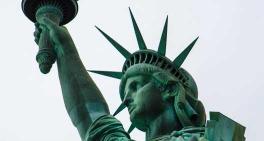Supreme Court sets high bar for medical device lawsuits
Featured Articles
The tiny balloon was supposed to stretch open a blocked artery on Charles Riegel's diseased heart. Instead, when the doctor inflated the balloon, it burst.
The patient went on life support but survived. His lawsuit against the manufacturer of that arterial balloon did not.
The U.S. Supreme Court ruled in favor of Medtronic, among the world's largest makers of medical devices, setting a precedent that has killed lawsuits involving some of the most sophisticated devices on the market.
The device that harmed Riegel had cleared the U.S. Food and Drug Administration's most rigorous review, known as "pre-market approval." To reach consumers, Medtronic provided regulators with documentation that the Evergreen Balloon Catheter would be safe and effective.
In Riegel v. Medtronic Inc., the justices grappled with whether Medtronic had any liability. They ruled that devices that have received pre-market approval are effectively immune from product liability lawsuits in state courts, where juries can award huge sums. The reasoning: Congress wrote that states couldn't add safety requirements beyond what the FDA imposes.
Since the Supreme Court ruling in 2008, rare is the case when a manufacturer must pay suffering, lost wages and other compensation to patients who claim they were injured by a pre-market approved device. Patients who believe they've been harmed can still sue device makers in federal court.
Related listings
-
Supreme Court to hear closely watched double jeopardy case
Featured Articles 12/07/2018The Supreme Court is set to hear arguments about an exception to the Constitution's ban on being tried for the same offense. The outcome could have a spillover effect on the investigation into Russian meddling in the 2016 election.The justices are ta...
-
European court orders Turkey to free ex-Kurdish party leader
Featured Articles 11/20/2018The European Court of Human Rights on Tuesday called on Turkey to release the former head of Turkey's pro-Kurdish opposition from detention. Turkey's president responded by claiming his country was not bound by the court's rulings.In its ruling on Tu...
-
Court fight likely in 10-year-old girl’s homicide case
Featured Articles 11/10/2018When a 10-year-old Wisconsin girl was charged with homicide this week in the death of an infant, it was a rare — but not unprecedented — case of adult charges being filed against someone so young.The girl told investigators she panicked a...

USCIS Issues Clarifying Guidance on NAFTA TN Status Eligibility for Economists
U.S. Citizenship and Immigration Services (USCIS) announced today that it is clarifying policy guidance (PDF, 71 KB) on the specific work activities its officers should consider when determining whether an individual qualifies for TN nonimmigrant status as an economist.
The North American Free Trade Agreement (NAFTA) TN nonimmigrant status allows qualified Canadian and Mexican citizens to temporarily enter the U.S. to engage in specific professional activities, including the occupation of economist. The agreement, however, does not define the term economist, resulting in inconsistent decisions on whether certain analysts and financial professionals qualify for TN status as economists.
TN nonimmigrant status is intended to allow a limited number of professionals and specialists to work temporarily in certain specifically identified occupations in the United States. This updated guidance provides USCIS officers with a specific definition of one such category – economists – allowing them to adjudicate applications in a way that complies with the intent of the agreement. This policy update clarifies that professional economists requesting TN status must engage primarily in activities consistent with the profession of an economist. Individuals who work primarily in other occupations related to the field of economics — such as financial analysts, marketing analysts, and market research analysts — are not eligible for classification as a TN economist.




